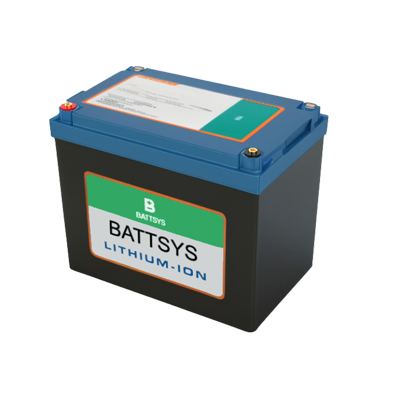Expert guide for selecting the
best lithium marine batteries to obtain reliable electricity.
When we talk about the power of maritime activities, choosing the appropriate battery is a key consideration. In recent years, lithium marine batteries have dominated the field of maritime activities. The basic principle of this trend is multifaceted: these energy storage solutions go beyond simple power supply, embody the core of ship electrical subsystems, and are synonymous with reliability, durability, and operational efficiency. By integrating high-quality lithium marine batteries into your settings, you have the potential to significantly enhance your water experience.
Lithium ion batteries, especially those tailored for towing motors and a range of other marine applications, have won praise for their excellent performance indicators when compared to typical lead-acid batteries. The characteristics of these advanced batteries are weight reduction, fast charging speed, and enhanced energy output, making them a typical choice for navigation enthusiasts who require unparalleled performance. Although there are numerous alternatives in the market, purchasing the best lithium marine batteries to meet your specific requirements requires careful consideration - we will further investigate this.

Why choose lithium instead of traditional lead-acid
Lithium based energy storage systems have greatly changed the paradigm of ocean energy demand. They are significantly superior to outdated lead-acid products in multiple aspects, consolidating their position as the preferred solution for sailors who prioritize efficiency, durability, and consistent performance. The following explanation describes their main advantages:
The advantages of lithium batteries
Lithium based energy storage systems have greatly changed the paradigm of ocean energy demand. They are significantly superior to outdated lead-acid products in multiple aspects, consolidating their position as the preferred solution for sailors who prioritize efficiency, durability, and consistent performance. The following explanation describes their main advantages:
Enhanced energy density: Lithium energy batteries provide a powerful energy density in the range of 150-200 Wh/kg, which is a significant amplification compared to the thin 30-50 Wh/kg provided by traditional lead-acid batteries. This powerful energy density can be converted into amplified power in smaller external dimensions, thereby optimizing the functional capacity and spatial economy of ships.
Absolute Discharge Depth (DoD): Unlike lead-acid batteries, if the discharge exceeds 50-80% of its capacity, the service life of lead-acid batteries will be shortened, while lithium batteries can withstand complete discharge without causing continuous damage. This ability to fully utilize the energy reserves of each charging cycle ensures maximum energy utilization.
Zero maintenance: Lithium batteries are free from the mandatory water addition and specific gravity evaluation unique to lead-acid systems, requiring no maintenance. This not only saves valuable time, but also improves safety by reducing the risk of acid leakage.
Extended cycle life: Lithium batteries have a lifespan of 5000 to 80 cycles at 2000% DoD, greatly exceeding the lifespan of lead-acid batteries with 300 to 800 cycles. This extended service life not only requires infrequent replacement over time, but also provides stable and reliable energy during its use.
Minimum self discharge rate: The self discharge rate of
lithium batteries is extremely low, only 1-2% per month, and their battery retention time is significantly longer than lead-acid batteries (lead-acid batteries can consume 4-6% per week). This quality is particularly beneficial for seasonal rowers, ensuring that the battery is available when needed.
Reduced mass and compact design: For a given capacity, lithium batteries are about 30-50% lighter than lead-acid batteries. For example, a 100Ah lithium battery may weigh about 26 pounds, while a lead-acid battery of the same capacity may weigh about 60 pounds. The significant reduction in weight not only helps improve fuel economy, but also accelerates handling speed.
